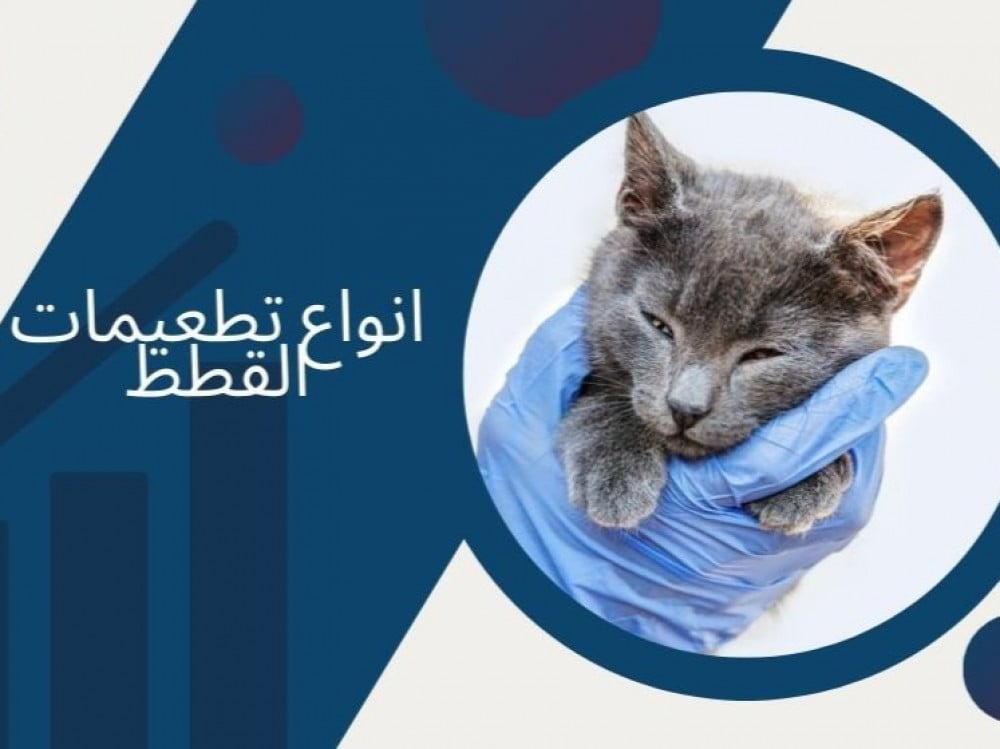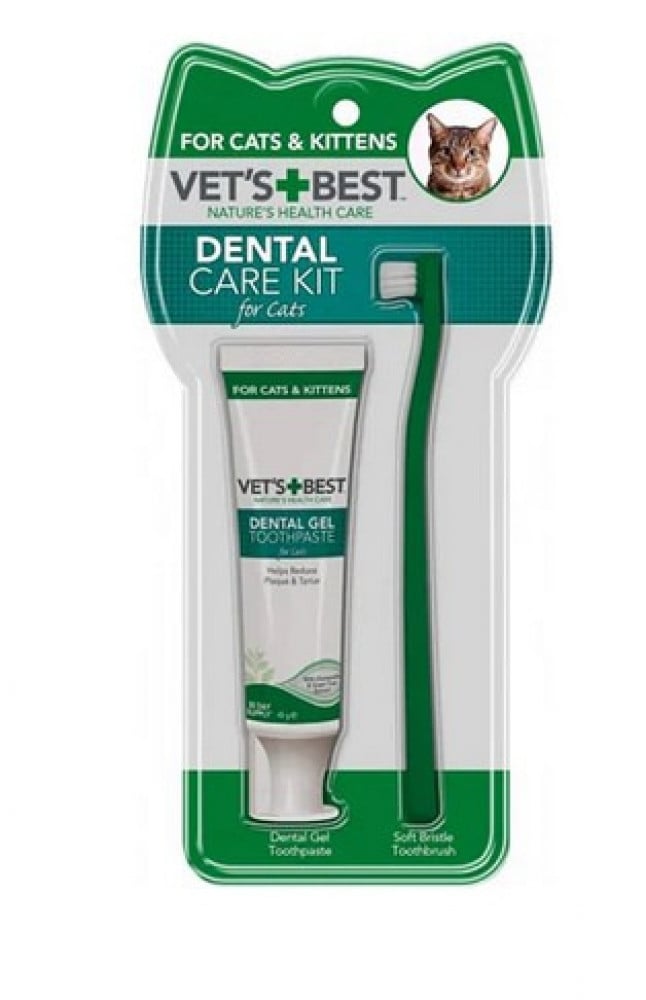
Types of cat vaccinations are one of the most controversial topics in the pet world. Knowing which vaccinations are necessary for your cat and which specific ones are optional can be confusing. Therefore, in this guide we provide you with detailed answers to some of the most frequently asked questions about cat vaccinations. You can also find all your cat supplies on Petaholic, where we care about your pet’s health as it should.
What types of cat vaccinations should I give my cat?
Vaccinations can be divided into core vaccinations and non-core vaccinations. Core vaccinations are necessary for all cats due to the high prevalence of diseases that can affect cats. As for non-essential vaccinations, they are given to cats only if there is a real risk of exposure to infection, and if the vaccination will provide good protection. The decision as to whether or not vaccinations are necessary for a cat is based on the cat's age, lifestyle, and contact with other cats. Therefore, you should always discuss the matter with your veterinarian to find out what vaccinations your cat may need.
Basic cat vaccinations
Basic vaccinations are required for all cats. These vaccines protect against highly contagious and fatal diseases. Basic vaccinations also have few harmful effects on cats. The four basic vaccinations include:
- Rabies : a virus that is fatal to humans and animals. Cats become infected with this disease by contracting the infection from other sick animals, and then transmitting the virus to others. Some symptoms of this disease in your cat may include convulsions, aggression, and death.
- Triple vaccination : This vaccination is a single injection given to protect your pet from three diseases: upper respiratory tract infection in cats and caliciviruses such as calicivirus and cat plague.
The triple vaccination consists of three injections:
- FPV Vaccination: Protects your cat against leukopenia, a highly contagious disease characterized by poor appetite, lack of energy, diarrhea and vomiting.
- FHV-1 Vaccination : This vaccine protects your pet against cat plague, also known as herpes virus. This virus affects your cat's respiratory system, and its symptoms include conjunctivitis, nasal congestion, sneezing, and pneumonia.
- FCV vaccination: This vaccination protects your cat from calicivirus, which also affects his respiratory organs. Signs of this virus include mouth sores, sneezing, nasal discharge, gingivitis, and even death.
Your cat should receive booster doses of these core vaccinations one year after the initial vaccinations. The triple vaccination should also be given annually to cats that go outside the house, while domestic cats should receive it every three years.
Types of non-essential cat vaccinations
Your cat may need additional vaccinations depending on the prevalence of the disease where you live, whether or not your cat goes outside, and for how long. Some of the most common of these vaccinations include:
- Chlamydia: This vaccination protects your cat against chlamydia virus, a bacterial infection that causes conjunctivitis, and is sometimes part of the triple vaccination.
- Feline Leukemia: This vaccine is highly recommended for outdoor cats. This virus is transmitted through bodily fluids such as saliva and urine. Although some cats recover from this disease, others develop secondary diseases such as anemia or lymphoma once the disease passes the latency stage.
- Bordetella : Cats who often live in animal shelters or areas with a lot of pets should be vaccinated against Bordetella. This disease is highly contagious and causes respiratory symptoms such as sneezing, fever, difficulty breathing, and nasal discharge.
Among the distinctive products that we recommend for your cat from Petaholic:
What are the side effects of cat vaccination?
Each of the vaccinations described above carries a certain amount of risk. However, these risks and side effects are much lower than the risks of developing the diseases themselves. These vaccinations often have a mild effect on cats and occur in a rate of half a percent of all vaccinated cats. Death and other serious side effects are extremely rare. The most common side effects that occur as a result of the basic and non-basic types of cat vaccinations are:
- fever
- Limping
- Swelling and redness of the vaccination injection area
- Vomiting
- Idleness
- Goosebumps
- diarrhea
You may also notice that your cat suffers from a temporary loss of appetite a day or two after vaccination, but all of these symptoms should disappear within 24 to 48 hours. Although these signs are very normal, if you notice them appearing in your cat after receiving vaccinations, consult your veterinarian to ensure that your cat receives the necessary care.
Among the distinctive products that you can get from Petaholic for the best care for your cat:
What is the importance of vaccinating cats and is it necessary even if the cat is healthy?
Vaccinations prevent diseases that are potentially fatal to your cat. Rabies, for example, is something that can be fatal if your cat catches it, and if you catch it, it can be fatal to you as well. So this is why vaccinations are necessary. Vaccinations for other diseases may not be transmitted to humans, but they are still very dangerous or fatal to your cat.
You should also not miss your cat's vaccination appointment; Because vaccinations depend on immune memory cells. When you vaccinate your cat regularly, you remind those cells what this pathogen looks like and how to respond to it. Therefore, if you miss your cat's regular vaccination appointment, he will not have the proper protection.
From our distinguished cat care range, we recommend for you:
When should my cat be vaccinated?
Cats are vaccinated for the first time between 6 and 8 weeks of age. Booster doses of these vaccinations are also given every three to four weeks until the age of 16 to 20 weeks. Thus, kittens will not be fully protected until seven to ten days after completing the vaccination series.
In the past, veterinarians recommended booster vaccinations on an annual basis. However, as we learn more about vaccinations and improve them, the appropriate interval has also changed depending on the lifestyle and lifestyle of cats. For most adult cats who received the full vaccine series as kittens, they should be revaccinated after a year, and then every one to three years based on an assessment of their lifestyle risks. If your cat is at higher risk of exposure to a disease, the doctor may recommend a more frequent vaccination schedule, perhaps every year. Therefore, it is important to discuss your cat's lifestyle with your veterinarian to determine the appropriate vaccinations and vaccination schedule for your cat.
Likewise, for cats that are not at high risk of contracting serious diseases, such as domestic cats that do not go out of the house, we recommend vaccinating them with basic vaccinations every three years, and then as determined by the veterinarian for any non-core vaccinations. Therefore, the veterinarian is the one who has absolute authority over how to vaccinate your cat and the appropriate timing for it.
If you want the best care for your cat and ensure its safety, we recommend to you from Petaholic:
- Beaphar tablets for fresh breath 40 tablets
What vaccinations are needed for cats?
There are several important vaccinations for cats to maintain their health and prevent the transmission of diseases. Here are some of the basic vaccines recommended for cats:
1. Chlamydia vaccine (Feline Chlamydophila):
It is considered necessary to protect against infections caused by the bacteria Chlamydophila felis, which causes infections in the eyes and respiratory system.
2. Chlamydia vaccine (Feline Calicivirus):
It protects cats from the calicivirus, which can cause respiratory infections and mouth infections.
3.Feline Herpesvirus-1 vaccine:
It is used to prevent viral herpes virus, which causes infections in the eyes and upper respiratory tract.
4. Chlamydia vaccine (Feline Leukemia Virus):
Especially recommended for cats living in an outdoor environment. It protects against feline leukemia virus, which can lead to serious diseases such as various types of tumors.
5. Chlamydia vaccine (Feline Panleukopenia):
This vaccine is necessary to prevent panleukopenia virus, which is a virus that can lead to a decrease in the number of white blood cells and cause serious diseases.
Cat owners should consult a veterinarian to determine the schedule for vaccinations and necessary vaccinations according to the cat’s circumstances and living environment.
How many cat vaccinations?
The number of cat vaccinations depends on several factors, including the age, current health condition of the cat, and the environment in which it lives. However, here is an overview of the basic vaccines your cat may need:
Vaccines for viral diseases:
Chlamydia virus (Feline Chlamydophila)
Feline Calicivirus
Herpes virus (Feline Herpesvirus-1)
Feline Leukemia Virus
Feline Panleukopenia virus
Vaccines for bacterial diseases:
Some vaccines may include protection against certain bacteria.
The vaccination and immunization schedule is usually determined by the veterinarian based on the cat's health status and environmental conditions. It may require several visits to the veterinarian in the first period of a cat’s life, and then the vaccinations must be renewed periodically throughout its life.
It is always best to consult a veterinarian to determine the correct program for the individual cat based on its individual needs and circumstances.
What is the first vaccine for cats?
The first vaccine given to a cat is usually a group of important vaccines to protect it from certain diseases. This vaccine is known as the “Core Vaccines” or “Core Vaccines,” and it usually includes several components to protect the cat from viruses and bacteria that pose a major threat to its health.
Vaccines for basic diseases usually include protection against the following diseases:
Feline Panleukopenia Virus : This virus causes a decrease in the number of white blood cells and leads to serious diseases.
Herpes virus (Feline Herpesvirus-1): causes infections in the eyes and upper respiratory tract.
Feline Calicivirus: causes infections in the respiratory system and mouth.
Feline Leukemia Virus: This virus is transmitted in cats, and may lead to serious diseases, including various types of tumors.
Chlamydia virus (Feline Chlamydophila) : causes infections in the eyes and respiratory system.
This first vaccine is usually given in a series of doses during the first months of the cat's life, and then the vaccines are renewed periodically as directed by the veterinarian. It is always best to consult your veterinarian to determine the optimal vaccination schedule for your individual cat.
Is it necessary to vaccinate cats?
Yes, vaccination of cats is necessary to maintain their health and prevent the transmission of diseases. Vaccines help protect cats from viral and bacterial diseases that can be serious and even fatal. Here are some reasons why it is important to vaccinate cats:
Disease prevention:
Vaccines provide effective protection against infectious diseases that may affect the health of cats, such as panleukopenia virus, herpes, calicivirus, leukemia virus, and others.
Protecting the cat community:
By vaccinating cats, the spread of diseases in the cat community can be reduced, and is important for maintaining the health of other cats in the area.
Prevention of bacterial diseases:
Some vaccines offer protection against certain bacteria, reducing your chances of developing serious bacterial infections.
Personal protection:
Vaccinating a cat protects it from health complications and diseases that can lead to high veterinary costs and serious health effects.
Although it is important to vaccinate cats, you should always consult a veterinarian to determine the optimal vaccination program based on the cat's individual needs and health and environmental conditions.
Notes
Ultimately, your cat's health and safety is a top priority that should be given your full attention. Because the health and safety of your pets is also a priority for us at Petaholic, we provide all animal supplies with the highest quality standards and the best prices.
We also have:




